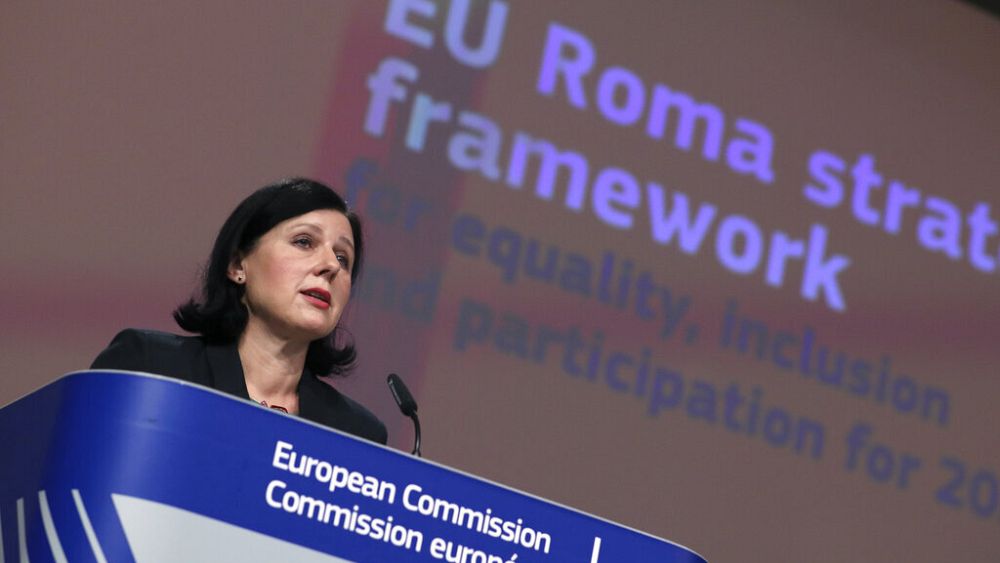A 10-year plan from the EU aimed at improving life for Roma people will not resolve the problems they face, a top activist fighting for the community told Euronews.
“This new framework will not solve it (the Roma”s plight) because there is no political will to push for the reforms that need to take place,” Zeljko Jovanovic, director of the Open Society Roma Initiatives Office, said.
As many as six million Roma live in the bloc, where the European Commission said 41% experienced discrimination over the past five years and where 85% of Roma children are at risk of poverty compared to 20% of children overall in the EU.
Under the plan announced on Wednesday, EU nations will have to submit national strategies by September 2021 and the Commission will monitor progress toward the 2030 targets, which centre on reducing discrimination, improving jobs access for Roma, reducing poverty and improving the quality of education for Roma children.
The EU Roma strategic framework sets out a number of targets on minimum progress to be achieved by 2030 and provides guidance to EU Member States on how to do this.
But Jovanovic thinks the Commission doesn’t go far enough in its plan, adding that a 2011 framework was just a “seed” for the change that was needed and wants to see Roma people’s interests included in EU recovery priorities, as well as policies and funding.
“The European framework is certainly a good step, a signal that the EU Commission at least sees that there is a structural problem that needs to be addressed by a policy and a structural map,” he added.
“But it cannot give results unless it becomes a pivotal part of what governments will do when they invest in the transition towards the green deal, in recovery, when they invest in digitalisation — all these trade policies will be critical in whether Roma people are losing or gaining jobs.”
When presenting the framework, European Union Vice President Vera Jourova labelled Europe’s treatment of its Roma people over the past decade “inexcusable”.
“Many continue to face discrimination and racism, the lack of inclusion of Roma communities in our societies is a scar on Europeans’ conscience,” she added, admitting that in the last 10 years, the EU has not done enough to support them.
“The European Commission needs to innovate and spread the message of possibility in European societies, so that stigmatisation and racism is confronted by stories of accomplishment, possibility and hope – so that what governments need to do is not in vain,” Jovanovic said.







